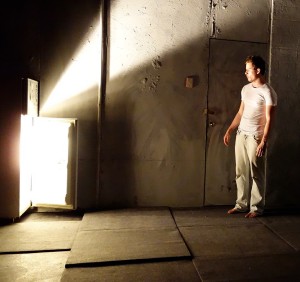Hypocrisy is my least favourite vice.
I don’t mean that I abhor it more than other vices. Rather, of all the supposed vices, it’s one of those I think least warrants the title.
My problem with hypocrisy is this: it’s too easily seconded in to attempts to shut down discussions of ethical behaviour.
For example, consider the criticisms aimed at so called ‘chardonnay drinking socialists’. According to some public commentators, if you drink chardonnay, you’re no longer qualified to discuss the redistribution of wealth in our society. (Have you drunk some of the gawd awful chardonnays out there? I attend the opening nights of small indie theatre companies; I have.* Believe me, quaffing chardonnay doesn’t automatically rocket you into the privileged classes. Unless, of course, you remember that there are a billion people on the planet who don’t have access to clean water.)
Which brings me back to my point. (And, yes, there’ll be talk of theatre soon enough.) If you bemoan the fact that there are children who don’t have clean water and yet afford yourself a glass of wine occasionally you are a hypocrite. But how is that possibly worse than drinking and not mentioning that there are people worse off than you?
I believe we should have ethical aspirations. I believe we should say ‘We could all do better’. Because we could. But hypocrisy is often so shallowly conceived, and flatly presented, that these vital conversations don’t occur.
In Measure for Measure, Shakespeare presents a very simple hypocrite. Angelo is given sovereignty over Vienna while the Duke is absent. He then precedes to prosecute citizens who contravene regulations about sexuality morality, regulations that previously, under the Duke, were not enforced. (To a modern eye, fornication is not a crime, but it’s not too difficult to find contemporary parallels.) Angelo’s hypocrisy springs from the fact he’s guilty of the ‘crime’ but does not acknowledge it.
Nick Hunter plays Angelo with a fair sense of humour, and it’s a good choice. The meat in this play, as I will argue, is elsewhere.

Danielle Baynes plays Isabella the novitiate, who faces a tough moral dilemma (well, once again, probably not to modern eyes, and possibly not to most Elizabethans). She must decide whether to save her brother’s life at the cost of her virginity. I won’t describe what happens (though I’m not sure if you can be guilty of a spoiler in a Shakespearean play), but suffice to say it leaves one considering justice and mercy and the true nature of love.** Baynes’ performance is powerful. Her response when Angelo tries to force himself on her is heart wrenching. And her final action of the play will ignite many a post-show discussion.
Director Richard Hilliar draws some delightful performances from his cast. Hailey McQueen is terrific fun as a nun. James Townsend is wonderful as the big talker who doesn’t know when to stop. (In fact, as this piece is being played in rep with King Lear as part of the Sydney Shakespeare Festival, it’s fascinating to witness such an enormous versatility of performance from the entire cast.)
John Grinston plays the Duke, and does an admirable job. There’s a suitable mix of gravitas and humour. But the Duke as written is a bizarre character, and it’s hard to know if Shakespeare thought of him as anything but a plot device. But he has a lot of stage time, and ultimately, despite avowing that he has all the other character’s best interests at heart, ends up treating them as little more than puppets.
A cautionary for playwrights, and other omnipotent beings? Or an insight into true hypocrisy?
Veronica Kaye
* For what my opinion is worth, Sydney Independent Theatre Company does not serve gawd awful chardonnay at their openings.
** I never do get round to discussing this in detail. See the play, then discuss it yourself in the bar afterwards, with some good chardonnay.
Measure for Measure
playing with King Lear as part of the Sydney Shakespeare Festival til 21st Dec
http://www.sitco.net.au/
Tags: Danielle Baynes, Hailey McQueen, James Townsend, John Grinston, Measure for Measure, Nick Hunter, Richard Hilliar, Sydney Shakespeare Festival


